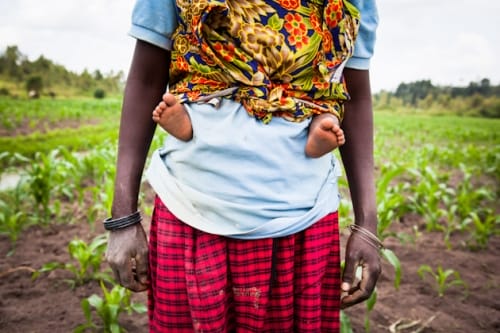News > Blog
The Cooperative Movement in Kenya: When a Sector Comes to a T-Junction
Published 06/03/2016 by Global Communities

The Cooperative Movement in Kenya: When a Sector Comes to a T-Junction
By Johnson Kithendu, Co-operatives Specialist & Country Lead, Global Communities, Kenya
This article originally appeared on the Global Cooperative Learning Platform.
In 2010, Kenya changed its entire constitution after many years of advocacy, activism, and frustrations. The Constitution of 2010 is hailed by many as being both progressive and people-centered. It is also praised for its clear principles supporting human rights and the separation of powers. The most dramatic innovation of this constitution, however, is the devolution of the governance structure in Kenya.
The Constitution created one unitary state and forty-seven county governments. These county governments operate as independent entities, and the constitution has clearly assigned specific roles to be performed by each level of the government. As a result, many functions were devolved to the counties. Among them, the function of ensuring the growth of cooperatives, as well as their management and regulation.
This devolution has had an enormous impact on the entire cooperative sector. The national law that had been governing cooperatives (Cap 490) must now be retired and the Constitution expects each county government to enact laws that would govern the cooperative sector in each respective county. Effectively, this means the cooperatives are now in a T-junction. They cannot continue using the old laws because they are not in tandem with the Constitution, while at the same time they do not yet have their own laws to guide the sector. Some counties have rushed and enacted laws only to find out they cannot fully operationalize all provisions of these acts.
This is why the cooperative movement in Kenya, more than any other time in history, needs partners to help it to navigate this junction as soon and as smoothly as possible. Key questions arise.
Does each county have the capacity to formulate cooperative laws that would suit the particular characteristics of the county and its neighbors?
Will there be harmony in the cooperative industry after these laws are enacted?
Will counties just “copy and paste” what used to be the national law into the new legal order or will they be bold enough to propose new provisions to align the county law with the needs of its populace?
Will the new laws stimulate or stifle newer forms of cooperatives (such as youth cooperatives)?
What will happen to the large national cooperatives domiciled in more than one county?
These are just some of the questions we are hoping to address through education.
EMIRGE, a cooperative development program funded by USAID under the Bureau for Economic Growth, Education and Environment (E3) in Washington, D.C., is participating in advocacy efforts to bring cooperative industry players together to create a common, progressive, and more inclusive cooperative legislation, which can be adopted by any county. EMIRGE is working in partnership with the Cooperative Alliance of Kenya to bring the Council of Governors, the county executives in charge of cooperatives, the Kenya Law Review Commission, and a consortium of international non-governmental organizations, among others, to support an initiative of the Cooperative Alliance of Kenya in adopting a draft of the model bill, County Cooperatives Bill. Thus far, these efforts are going well and we have successfully raised the profile of cooperatives and their potential for contribution to county economic strategies as well as their ability to create stable incomes in both the urban and rural areas. Continue to watch this space for updates on how these efforts are yielding fruit in the service of the cooperative movement in Kenya.





